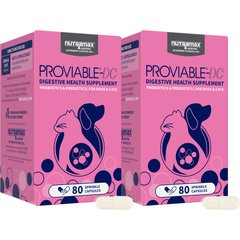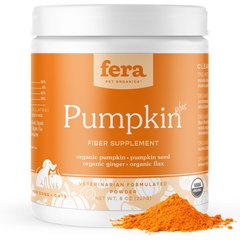The Special Nutritional Needs of Puppies
Puppies are not simply smaller, younger versions of dogs, in the same way that human babies are not miniature adults. Growth and development is hard work, and special nutrition is required to fuel it.
Also, young animals are especially sensitive to the effects of dietary deficiencies, toxins, and poor quality ingredients, so owners should pay very close attention to what food they feed during a dog’s first year of life.
What are the special nutritional needs of puppies? First, let’s take a look at calories — the gas in the tank, so to speak. Puppies should eat a more calorie-dense food than would be appropriate for a typical adult dog.
A high quality puppy food might have 445 kcal/per cup while an adult food in the same line could have 375 kcal/per cup. That might not seem like such a big disparity, but the extra calories are very important in the long term.
And the differences don’t just stop with calories. Take a look at some of the American Association of Feed Control Officers (AAFCO) minimum nutrient requirement for puppies and adult dogs:
You can see that puppies need more of many important amino acids and minerals (and more protein and fat in general) than do adult dogs. Puppies are at risk for nutritional deficiencies if they eat foods designed for adults. Nutrients not regulated by AAFCO are also important.
For example, quality diets contain high levels of certain types of omega 3 fatty acids to promote healthy skin, a glossy coat, and optimize brain and eye development.
Owners of large breed puppies have an additional concern to deal with when picking out a food: developmental orthopedic diseases.
An abnormally rapid growth rate is a major risk factor for hip dysplasia and similar conditions.
Diets designed for large breed puppies should have a lower fat content and therefore a lower caloric density than those meant for small and medium-sized puppies.
Eating a food with too much calcium and phosphorus and a high calcium to phosphorus ratio also increases the odds that a large breed puppy will be afflicted by a developmental orthopedic disease. Therefore, responsible manufacturers carefully balance the amount of calcium and phosphorus in foods designed for these pets.
Whether your puppy is going to grow to be the size of a chihuahua, a mastiff, or somewhere in between, make sure to pick a food that provides perfectly balanced nutrition for this unique time of life, and that it is made from the wholesome, natural ingredients necessary to a lifetime of good health and well-being.

Dr. Jennifer Coates
Image: Fotyma / Shutterstock
Related
Your Puppy Has Hip Dysplasia; Now What?
Recommended Pet Products
- Nutramax Proviable Probiotics & Prebiotics Digestive Health Supplement for Dogs & Cats, 160 count$89.98Chewy Price
- Fera Pets USDA Organic Pumpkin Plus Fiber Support for Dogs & Cats, 90 servings$34.95Chewy Price
- All Four Paws Comfy Cone E-Collar for Dogs & Cats, Black, Small$20.24Chewy Price
- Virbac Epi-Otic Advanced Ear Cleaner for Dogs & Cats, 4-fl oz bottle$12.34Chewy Price




